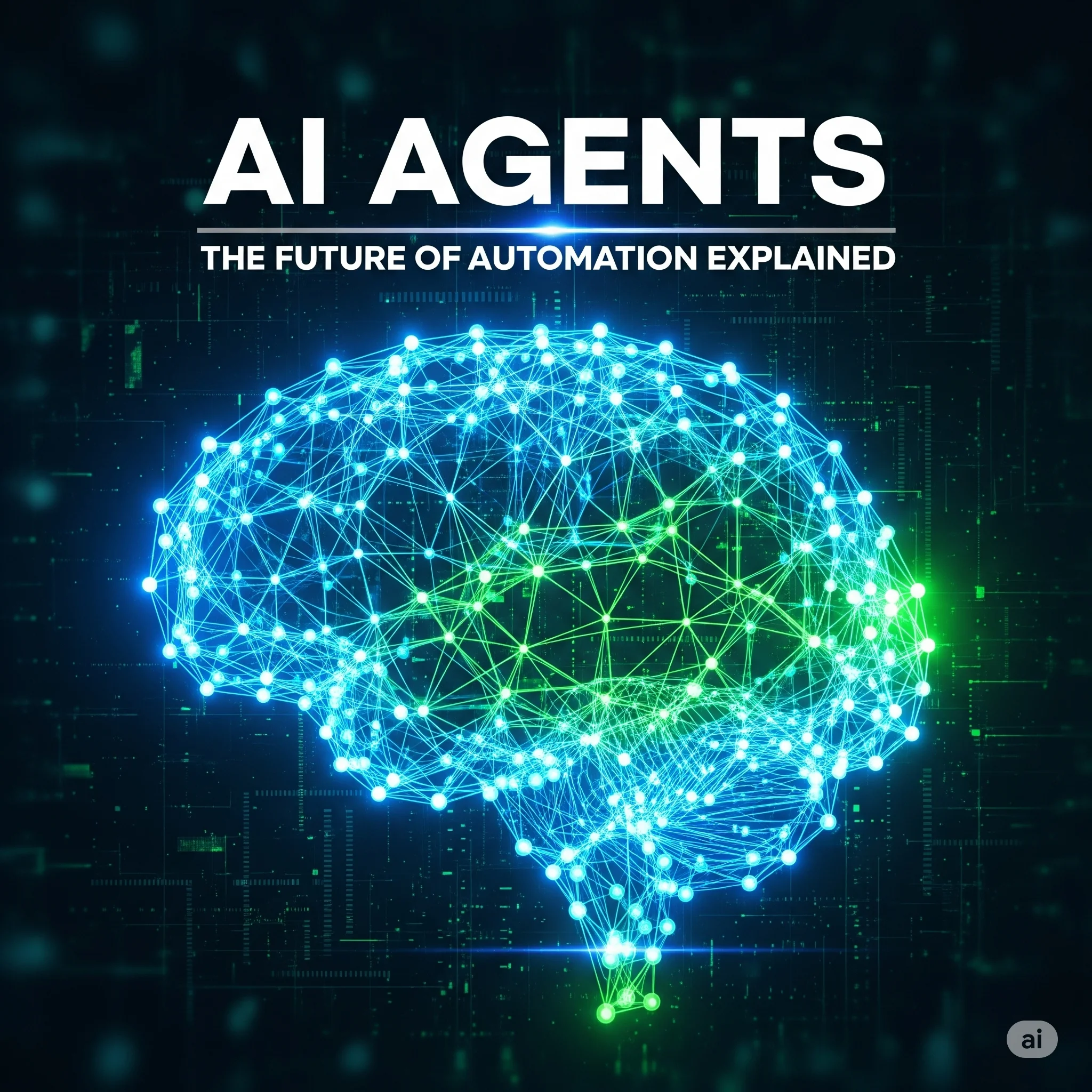Introduction
AI agents are software programs designed to perform specific tasks autonomously. They leverage artificial intelligence to process data, make decisions, and execute actions without constant human oversight. From sorting emails to managing calendars or even making purchase decisions, AI agents are transforming how we interact with technology.
Core Components of AI Agents
AI agents consist of several key components that enable them to function without human input:
- Data processing modules – Collect and analyze information from various sources.
- Decision-making algorithms – Interpret patterns and trends to guide actions.
- Action execution protocols – Carry out tasks that align with defined objectives.
The synergy between these parts ensures that AI agents operate efficiently across different environments.
Types of AI Agents
AI agents are categorized based on their capabilities and behaviors:
Reactive Agents
These agents respond to inputs with predefined actions. They’re best suited for environments requiring immediate responses, such as:
- Gaming
- Automated customer support
Deliberative Agents
These agents plan, strategize, and evaluate multiple options to achieve long-term goals.
Hybrid Agents
A combination of reactive and deliberative features, these agents balance fast responses with strategic thinking.
Evolution of AI Agents
The journey of AI agents has evolved significantly:
- Early AI agents were limited, with basic functionalities.
- Modern agents, powered by machine learning and deep learning, are sophisticated and adaptive.
Today’s AI agents can learn, grow, and become integral to complex systems across industries.
How Do AI Agents Work?
At the heart of AI agents lies machine learning, allowing them to identify data patterns and improve over time.
Machine Learning Fundamentals
There are three primary types of machine learning techniques used:
- Supervised Learning – Trained on labeled data to recognize patterns and make predictions.
- Unsupervised Learning – Analyzes unlabeled data to uncover hidden structures.
- Reinforcement Learning – Learns via trial and error using feedback from the environment.
Role of Algorithms
Algorithms guide decision-making. Commonly used ones include:
- Decision Trees – Break down complex decisions into smaller parts.
- Neural Networks – Recognize deep patterns, mimicking the human brain.
- Support Vector Machines (SVMs) – Classify data by distinguishing between categories.
Self-Learning Capabilities
AI agents continuously learn from new data, improving accuracy and efficiency.
Example: A customer service agent reviewing past tickets to generate better responses.
Benefits of AI Agents
AI agents offer numerous advantages in both business and personal settings:
1. Increased Efficiency
They automate repetitive tasks like:
- Data entry
- Scheduling
- Email management
This frees up human workers for more complex and creative work.
2. Cost Savings
Automation reduces the need for large workforces, minimizing:
- Labor costs
- Human error
- Rework and inefficiencies
3. Improved Decision-Making
With real-time data insights, AI agents:
- Predict market trends
- Optimize supply chains
- Personalize customer experiences
4. 24/7 Availability
AI agents don’t tire. They’re always on, making them ideal for:
- Global customer support
- Continuous monitoring and reporting
Applications of AI Agents
AI agents are already transforming multiple industries:
Customer Service
They handle:
- Inquiries via chatbots or virtual assistants
- Order processing
- Ticket resolution
They also analyze interactions for quality improvement.
Healthcare
AI agents assist with:
- Patient scheduling
- Record management
- Preliminary diagnosis
They process massive data volumes, helping doctors make informed decisions.
Finance
They are used for:
- Fraud detection
- Risk assessment
- Investment forecasting
Automation and predictive analytics improve both security and profitability.
Retail
AI agents help with:
- Inventory control
- Personalized marketing
- Demand forecasting
They tailor promotions to individual preferences and optimize pricing strategies.
Challenges of Implementing AI Agents
Despite their advantages, AI agents come with several challenges:
Data Privacy Concerns
Handling sensitive data brings up privacy risks. Businesses must:
- Comply with laws (e.g., GDPR, CCPA)
- Implement strong security protocols
Integration with Existing Systems
Integrating AI agents requires:
- Infrastructure assessment
- Staff training
- System upgrades
Careful planning is key for smooth deployment.
Dependence on Technology
Over-reliance on AI may reduce human oversight, leading to:
- Errors if the system fails
- Lack of adaptability in unexpected situations
Businesses must strike a balance between automation and human judgment.
The Future of AI Agents
The future looks bright for AI agents, with several emerging trends:
1. Enhanced Personalization
AI agents will create even more tailored user experiences by:
- Understanding nuanced user preferences
- Delivering hyper-personalized content and services
2. Greater Human Collaboration
They will function more like teammates than tools, helping human workers in collaborative settings.
3. Expansion into New Sectors
Future use cases include:
- Education – Personalized tutoring, progress tracking
- Agriculture – Smart irrigation, crop monitoring, and resource optimization
Conclusion
AI agents are redefining the future of automation by offering:
- Increased efficiency
- Enhanced decision-making
- Major cost savings
However, successful adoption requires addressing data security, integration challenges, and maintaining human oversight.
Businesses that embrace AI agents and evolve alongside the technology will lead in innovation and competitiveness.
